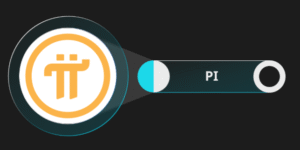$ICE $SPY $VOO
#NYSE #afterhourstrading #stockmarket #tradinghours #WallStreet #investing #electronictrading #fintech #ETFs #traders #marketregulations #ArcaExchange
The New York Stock Exchange (NYSE) is proposing to extend its trading hours, a potentially significant change for both casual and institutional investors. If approved by regulators, the trading hours on the exchange’s electronic platform, NYSE Arca, would begin as early as 1:30 a.m. Eastern Time (ET) and stretch until 11:30 p.m. ET. This change would allow traders to access the market for nearly 22 hours a day, spanning the entire global trading session from the pre-market hours to after the main market closes. This enhanced schedule could accommodate investors operating across time zones and those looking to react instantly to global news and events.
The move reflects a trend in the financial markets toward greater accessibility and more fluid trading hours. Currently, after-hours trading on the NYSE is somewhat restricted, often leading to liquidity issues after regular market hours, which run from 9:30 a.m. to 4:00 p.m. ET. With an expanded trading window, liquidity could improve as more participants engage in after-hours trading, making price movements more predictable and less volatile. However, critics note that extended hours may also increase the risk of uninformed trades, as corporate announcements or economic data releases that can significantly impact stock prices tend to occur during regular sessions.
Further benefits of the extended hours may appeal to traders involved in exchange-traded funds (ETFs) and other indices that rely on continuous price discovery, especially those linked to international markets. ETFs like $SPY (the largest S&P 500 ETF) and $VOO offer exposure to broad-market indices and often see high volumes in both pre-market and after-hours trading sessions. By ensuring that these instruments can be traded for an extended time, the NYSE could attract more liquidity and potentially lower bid-ask spreads during off-peak hours, enhancing the overall market efficiency of electronic trading platforms like NYSE Arca.
Market participants and experts are awaiting the regulators’ decision, anxious to see how such extended hours will impact trading. If approved, this could set a precedent for other major exchanges around the world to follow suit. Moreover, it could spur innovation among brokerage firms, who may have to adapt by offering more robust after-hours services or adjusting commission fees to encourage participation during these extended trading sessions. However, any regulatory hurdles could add delays, making it a waiting game for investors eager to see how the market evolves around this proposed change.










Comments are closed.